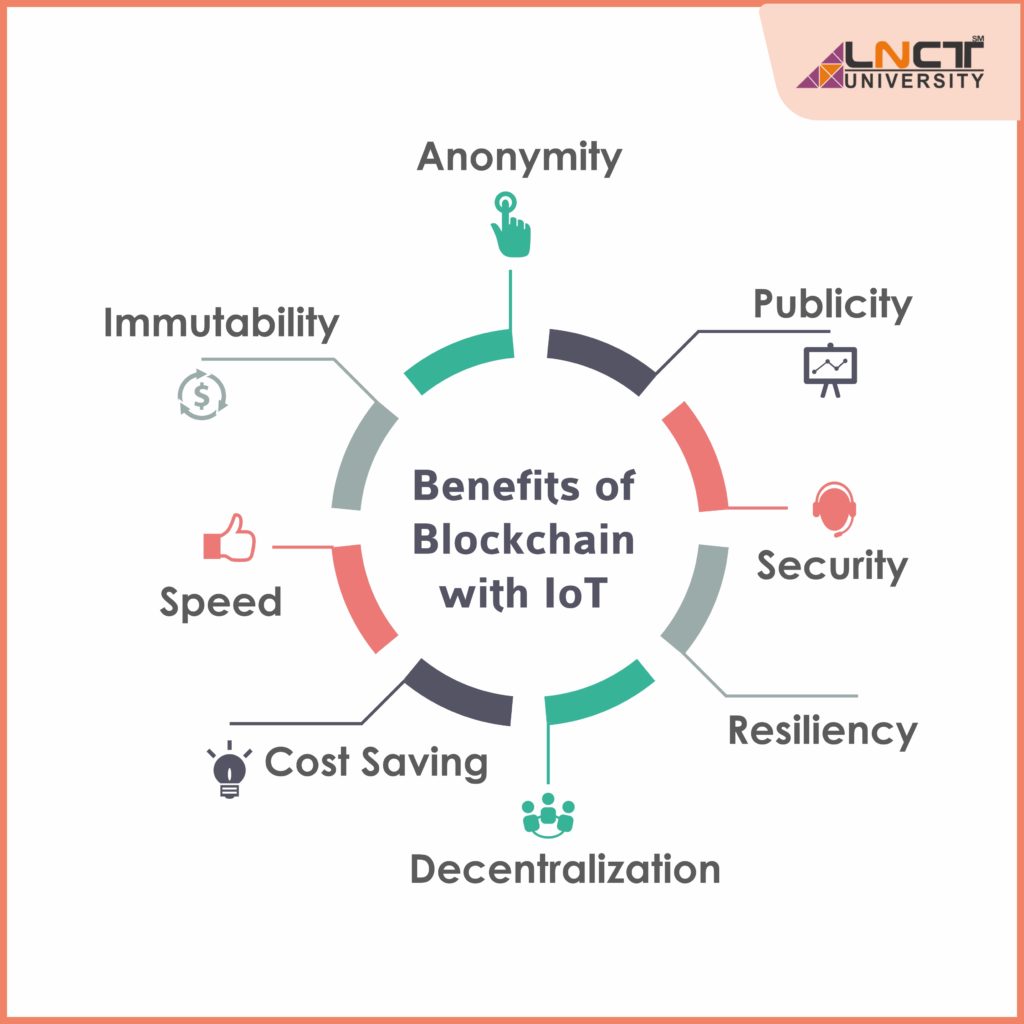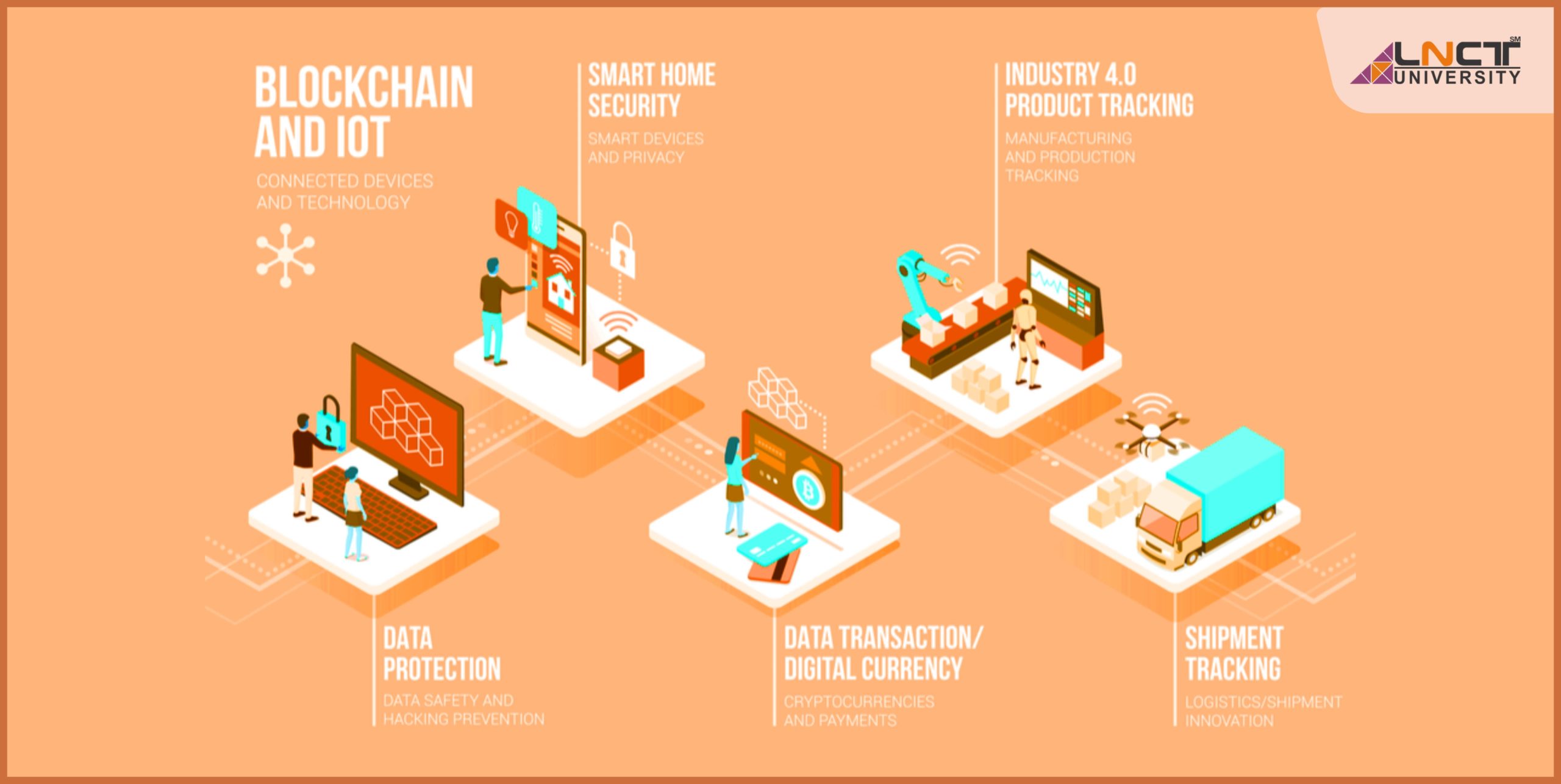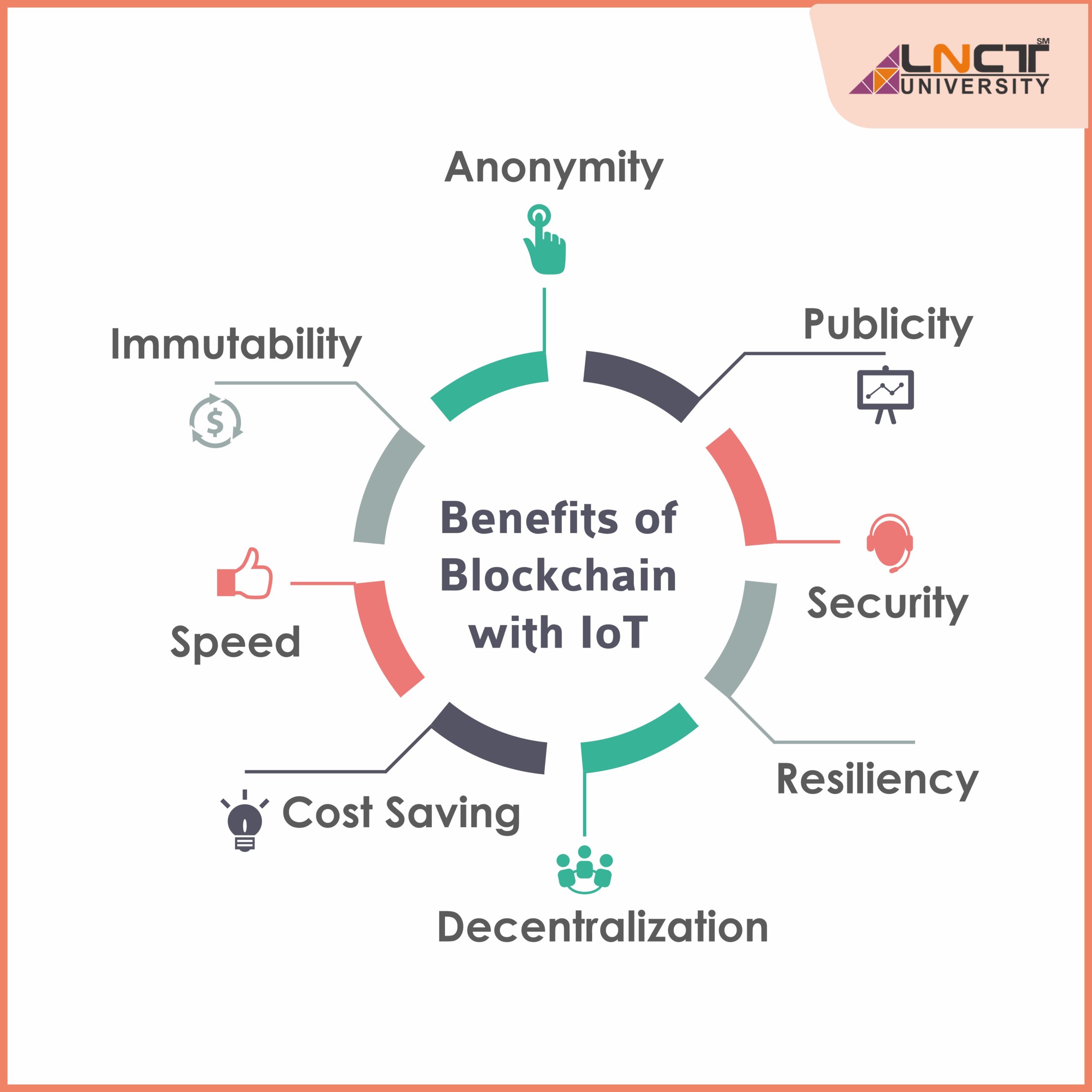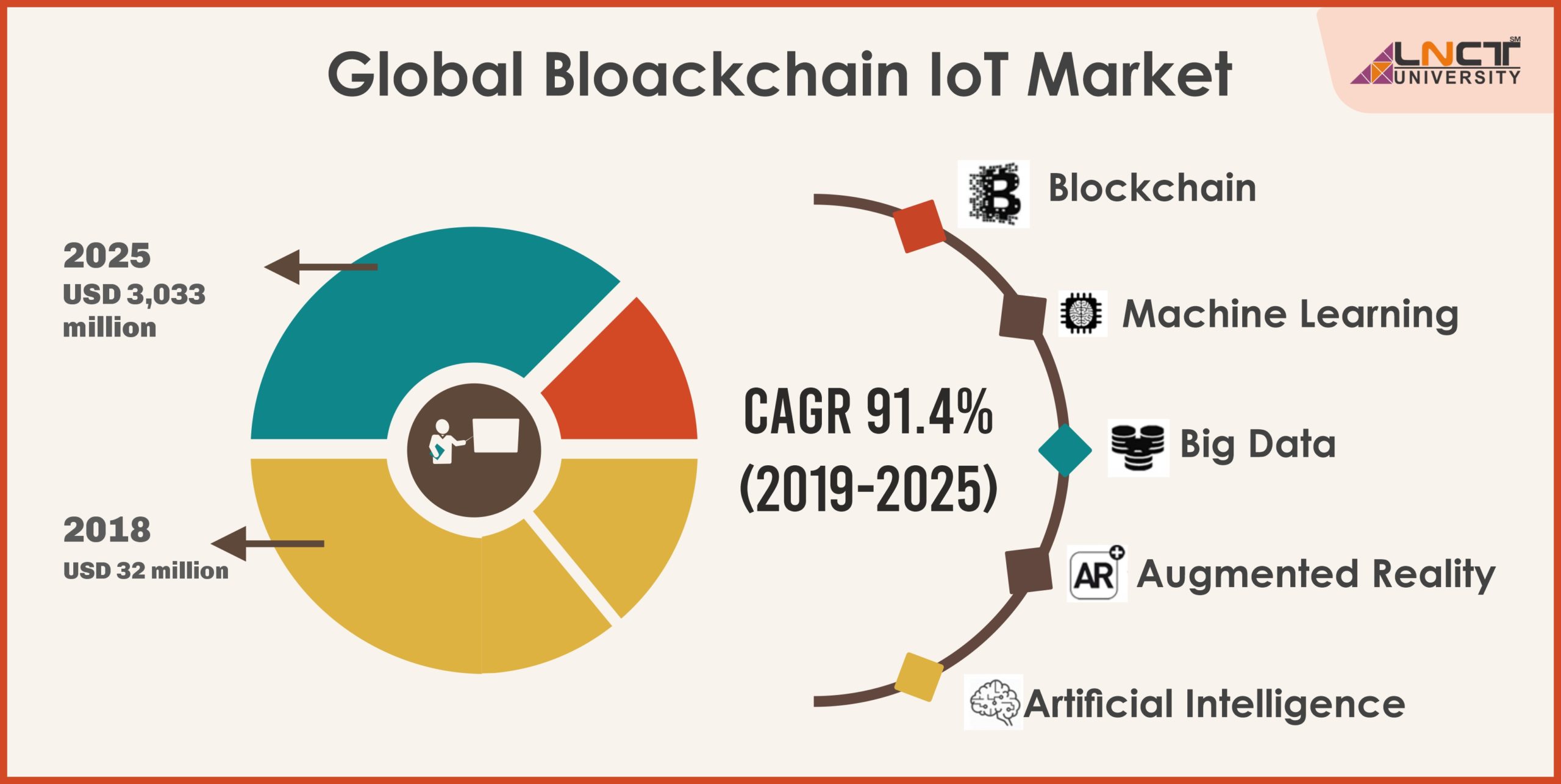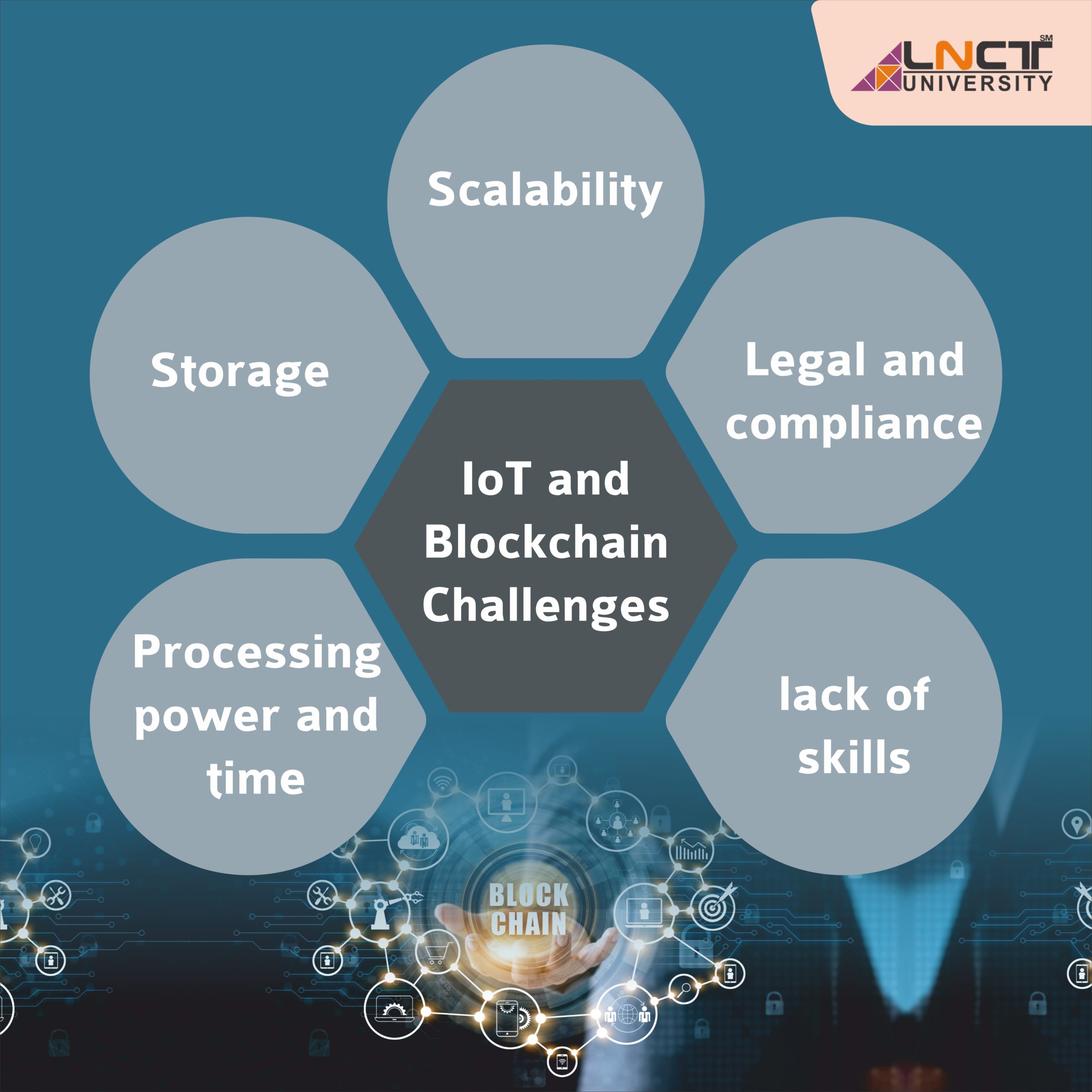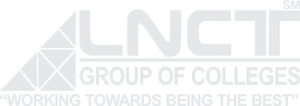LNCT Group has few best courses for aspiring engineers and scientist. LNCT is the Best Internet of Things College in Bhopal 2021
Definition of the Internet of Things (IoT)
The Internet of Things, also abbreviated as IoT, defines the billions of physical devices across the globe, are now linked to the internet, all assembling and distributing data.
We should be grateful for the landing of terrific affordable computer chips & the universality of wireless transmission. Also, it’s quite possible nowadays to change anything, from small to gigantic.
Everything is a cakewalk with the help of the IoT. Linking up all these various objects together and adding sensors to them build on a level of digital intelligence to devices that would be otherwise dumb, enabling them to communicate real-time data without involving a human being.
The Internet of Things is creating the framework of the universe around us. It enables things to be ingenious and compassionate, accumulating the digital & physical universes together.
What is Blockchain?
Blockchain is quite problematic, but its key concept is very straightforward. It is a type of database. A blockchain is very useful to better understand what a database is genuinely referred to.
A database is generally a collection of information that is kept electronically on the computer. Information, or data, in databases is typically structured in tabular format allows easier searching and filtering for specific information.
Blockchain is a distributed, set of the ledger for recording transactions, inspecting assets, and fabricating trust. In this article, we will know that why every platform around the world is endorsing it.
Features of IoT work with Blockchain
IoT allows devices across the Internet to send data to private blockchain networks to create tamper-resistant records of shared transactions.
IBM Blockchain permits your business associates to share and access IoT data with you. Each transaction has to be verified to prevent conflicts and build trust among all business associates.
Tips to get benefitted IoT with the power of Blockchain
- Build your trust in IoT data
- Depend on added security
- Gain greater flexibilities
Applications of IoT and Blockchain
- Freight transportation
Moving freight is a complicated process that includes various parties with different priorities. An IoT permitted blockchain capable of keeping records of the temperatures, position, arrival times, and status of shipping containers in real-time.
Fixed blockchain transactions are very helpful to assure that all parties can trust the data. Also, it can be a necessary step to move products quickly and efficiently.
- Component tracking and compliance
The capability to track products that go into an airplane, automobile, or other products is critical for both safety and regulatory compliance. IoT data stored in shared blockchain ledgers allows all parties to see component provenance throughout a product’s life. Sharing this information with approved agencies, shippers, and manufacturers is secure, easy, and cost-effective.
- Log operational maintenance data
IoT devices monitor and ensure safety for critical machines and their compliance. From engines to elevators, blockchain provides for a tamper-free ledger of operative data and the resulting maintenance.
Third-party repair partners can audit the blockchain for preventive maintenance and record their work back on the blockchain. Operative records can also be shared with government companies to verify observance.
The platform of IoT and Blockchain is rapidly growing
IBM Blockchain is already enabled to extend (private) blockchain into the cognitive Internet of Things. It will be the assembling of artificial intelligence, IoT, and blockchain that will prove most interesting across industries and in myriad possible IoT applications.
The blockchain is helping us continue to build the digital infrastructure that enables advancement, rise, progress, and impacts so many areas, from data analytics to security, in an environment that thus far was centralized.
To demonstrate the advantages of blockchain and Internet of Things convergence, IBM gives the example of complicated trade lanes and logistics through smart contracts that can follow everything that has happened to individual items and packages.
The following are the advantages of Blockchain & the Internet of Things:
- Audit trails
- Accountability
- New forms of contracts and speed
- Accelerated Data Change
- Cost-Effective
- Provides Transparency
- Track the transactions in real-time
- Each transaction can be recorded
- Create digital infrastructure, etc.
Challenges before IoT and Blockchain
Forrester’s Martha Bennett has been already confirmed that it’s time to start looking at that IoT and blockchain merging even if the accumulation of both might not be for today.
She describes mainly three categories of challenges that that Internet of Things and blockchain, ecosystem participants must address.
In a brief, according to Forrester, the core challenges before IoT and blockchain environment participants are:
Security Challenge: In this platform where IoT security is already a big challenge, it’s clear that security needs to be monitored. It is important to keep in mind t that blockchain is also seen as a way to secure the Internet of Things and, as mentioned, security overall but that is another discussion with several opinions and aspects to cover.
Operational challenges: The business model and the practical aspects as this requires many agreements and of course many actors too in a broad ecosystem.
Legal and compliance issues. Bennet among others defines the responsibility factors in case of actions that are taken by devices, based on a system that is automatically executed by a blockchain-based application, triggered by another blockchain-based application (you see the complexity).
Also, there is a very good example of smart contracts. As most of us know that contracts are far from easy, even outside this IoT and blockchain context.
What is the ultimate solution to IoT challenges?
Dated back to the 2017 spring season, the great Nicolas Windpassinger, author of ‘Digitize or Die, an IoT book for digital transformation leaders, was all about the practical circumstantial blockchain can address in IoT. He wrote that blockchain can surely stabilize the progression of IoT.
Windpassinger: Blockchain technology assures to be the missing link allowing peer-to-peer contractual behaviour without any third party to “certify” the IoT transaction. It answers the challenge of scalability, single point of failure, time stamping, record, privacy, trust, and reliability in a very systematic way.
Blockchain technology generally builds a nice infrastructure for two devices to directly transfer a piece of property such as money or data between one another with a secured and reliable time-stamped contractual handshake. To permit message exchanges, IoT devices will hold agile contracts which then represent the agreement between the two parties.
This characteristic allows the independent functioning of smart devices without the need for concentrated authority. If you then extend this peer-to-peer transaction to human or human to platforms, you will get a fully distributed trusted digital infrastructure.
The core reason for the adoption of Blockchain + IoT in every industry
Blockchain is tried & tested in ample industries. It has been witnessed sometimes that we see that in those industries there is a link between blockchain and IoT within the specific industry. In this portion, we are going to discuss the importance of blockchain and IoT in insurance.
Generally, the use of blockchain in insurance is smart contracts and the progress of various processes such as claims management. Some applications consist of fraud management, legally required applications (blockchain is looked at in the legal sector indeed), and even the usage of modern & sophisticated technologies in the insurance sector.
It’s very interesting & exciting to have a look at the accumulation of blockchain and the Internet of Things because it’s commonly used in insurance and will increasingly be, moving beyond the pure telecommunication model to the interrelation of real-time IoT data in various points of view for ample intelligent automated insurance policy applications.
However, it might look like a very future application of blockchain in the insurance industry, but at the same time keep in mind that from an IoT investment perspective, early 2017 IDC predicted that insurance is going to be one of the rapidly rising industries in the period until 2021, albeit with a major focus on telematics (where smart contracts make a good impression) principally we will witness ever more smart cars forever.
IoT and Blockchain: the only bright future
With the progress of IoT and blockchain in industries, we will get every piece of stuff at our fingertips. The platform will open enormous unlimited opportunities in the coming years.
IoT and blockchain can be used for various purposes
The latest technologies are e helpful in achieving everything we want to., for example, think about the circumstance of IT and OT with the help of operational technologies and manufacturing technologies (and standards and protocols) are essentially rotating around data (capturing, making interoperable, analyzing, leveraging for immediate purposes, leveraging in broader ecosystems using which data exchanges and blockchain certainly also are looked at in an IoT data perspective and beyond), increasingly autonomous decisions based upon data analysis.
In this situation, we have to mention Industry 4.0 and its end-to-end data & strategy approach and of course also the development in logistics (more with a case below). In both Industry 4.0 and smart logistics, there is not only concentration on the end-to-end data representation but also autonomous decisions.
Following is a vital case below discussed:
The IoT, blockchain, and next-generation security not only provide safeguard cybersecurity but also it has some issue with security challenges on, Add robotics, Add systems, such as ERP. Then there are systems like ERP. According to IDC IoT, blockchain and cognitive computing are three pillars for the next generation of ERP, also called Intelligent ERP.
Importance of IoT and Blockchain in today’s world
In this era Internet of Things(IoT) and Blockchain plays a very significant role in bringing every aspect together whether it’s in the case of the electricity industry and selling/buying and/or smart contracts or any other state of affairs to keep record autonomous, machine-to-machine transactions.
This could be for security and control reasons with continuous optimization, predictive maintenance improvements, and AI-enabled ways to improve the decision-making while activating again new applications when, for example, accumulated with digital twins.
Also, you can have a sneak peek at all platforms where it makes sense to do so, mainly where there are large no. of transactions or important transactions with the help of which one application needs another and/ is strengthened upon others and robust technologies with data and transactions inclusive of smart contracts at the center.
Top IoT Courses in India 2021
Eligibility Criteria for B.Tech. in Computer Science (Specialization in Internet of Things and BlockChain)
| Qualification | Minimum Eligibility |
| Higher Secondary pass | 50% |
Fees & Duration for B. Tech in CSE
| Total Fees | INR 3.20 Lakh |
| Duration | 4 years (Full Time) |
| Course Level | UG Degree |
| Website | Go to website |
Top Recruiting Companies in LNCTU
Adobe | Amazon | CapGemini | Cognizant | Directi | Indian Navy | Infogain | Infosys | Newgen | Persistent | Samsung | TATA Consultancy Services | Tata Projects | Wipro | Zensar Technologies
Conclusion
This article is about the interconnection of IoT with blockchain, scope in the future, benefits. IBM Blockchain is already enabled to extend (private) blockchain into the cognitive Internet of Things.
It will be the assembling of artificial intelligence, IoT, and blockchain that will prove most interesting across industries and in myriad possible IoT applications.
The blockchain is helping us continue to build the digital infrastructure that enables advancement, rise, progress, and impacts so many areas, from data analytics to security, in an environment that thus far was centralized.
Blockchain technology generally builds a nice infrastructure for two devices to directly transfer a piece of property such as money or data between one another with a secured and reliable time-stamped contractual handshake. To permit message exchanges, IoT devices will hold agile contracts which then represent the agreement between the two parties.
In this era Internet of Things(IoT) and Blockchain plays a very significant role in bringing every aspect together, whether it’s in the case of the electricity industry and selling/buying and/or smart contracts or any other state of affairs to keep a record autonomous, machine-to-machine transactions.

